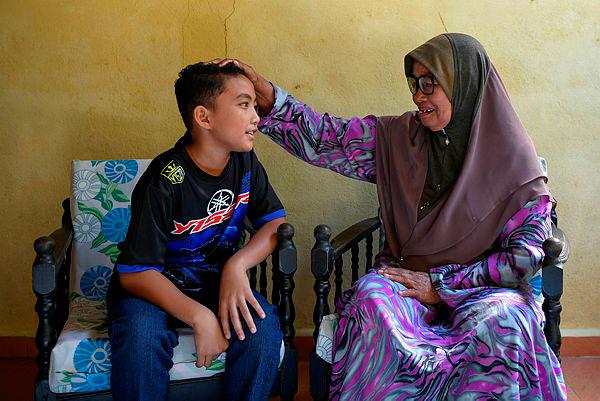KUALA BERANG: The difference in dialects spoken by the people in each state and district is among the uniqueness of the country’s cultural heritage.
However, the existence of more than 30 different dialects in Hulu Terengganu is what makes the district very unique.
Hayati Ahmad, 46, a teacher who is involved in efforts to preserve the dialects spoken in Hulu Terengganu, said residents in most villages in Hulu Terengganu speak different dialects even though the villages are nearby and less than a kilometre apart.
“The uniqueness of the dialects is in the way it is spoken and the use of the words. In some villages, the same word is spoken is a softer tone, while in some villages, it may sound harsh.
“For example, the word ‘ulu’. The people of Kuala Berang pronounced the word as ‘ulu’, while villagers in Kampung Tengkawang pronounced it as ‘ulou’, ‘uluk’ for residents in Kampung Nibong and in Kampung Baung the pronunciation is ‘olou’ which sounds softer.
“Such a pronunciation applies to all words ending with the letter ‘u’,” she told Bernama recently.
Hayati, who teaches Bahasa Malaysia at Sekolah Menengah Kebangsaan Seri Berang here, also said that not many residents of Hulu Terengganu can differentiate the way the word is pronounced by residents in the various villages in the district.
“The people of village A sometimes do not understand the word used by the people in village B. This situation occurs because the word sometimes refers to something else by the people in other villages.
“For example, the dragonfly, it is known as ‘ca’i’ by the people in Kampung Tengkawang, while in Kampung Pauh it is called ‘klica’ and in other villages, some call the dragonfly ‘ssibu’ and ‘ciibi’.
“This is difficult, especially for the young generation to understand,“ she added.
The mother of five said the difference in the dialects could be due to the way of life of the villagers in the olden days where they socialised only among themselves and did not mix with those from outside their community, even though they lived in the same district.
However, due to modernisation, the dialects used in the Hulu Terengganu district is fast becoming extinct as less and less people are using the dialect to converse.
She said although most of the young generation in Hulu Terengganu could still understand the dialect, but only a few could converse fluently using the dialect.
Afraid that the dialects used by the people in Hulu Terengganu would become extinct, Hayati, who is affectionately known as Cikgu Yati, has taken several initiatives to preserve them.
“I always perform poem or pantun recitals in school and do that in the Hulu Terengganu dialect. There is a video on my poem recital performance which has been uploaded on the social media and it has attracted many viewers because of the dialect.
“Since 2016, I have received a number of invitations to perform at expos organised by the Terengganu government, and since 2019, invited as as a guest on Radio Terengganu for the ‘Guana Gamok Orang Kiter’ segment,“ she said.
She is also involved in producing a glossary on the Hulu Terengganu dialect, a project carried out by former Kuala Berang Assemblyman Datuk Tengku Putera Tengku Awang.
“My hope is that the young generation will continue to love the dialect of our ancestors , which they should be proud of because that is our identity that needs to be preserved,” she said.-BERNAMA













